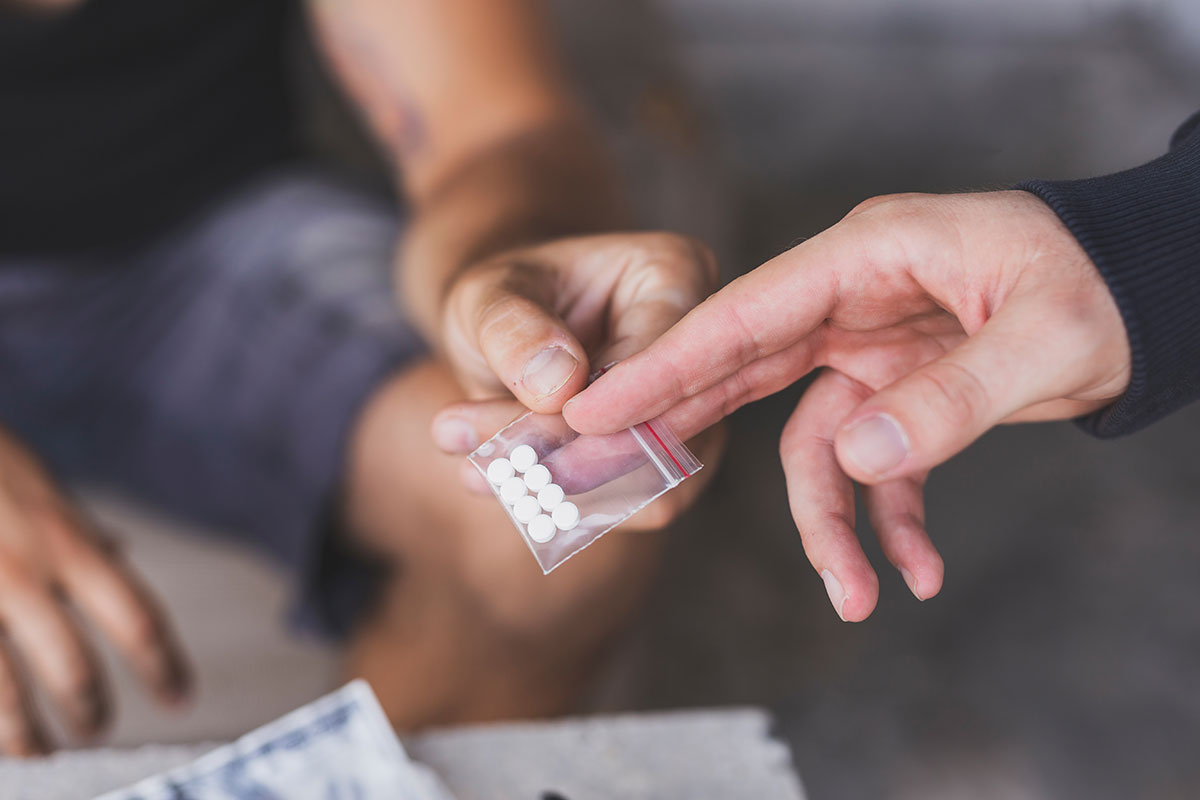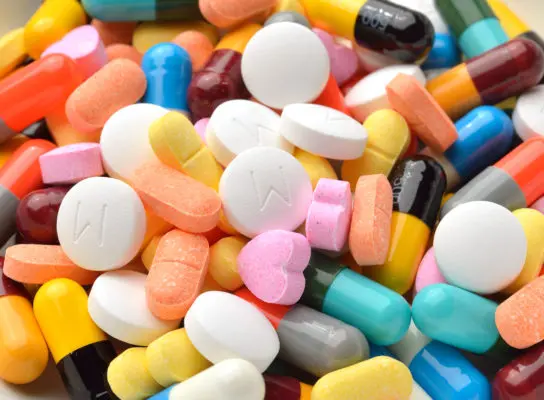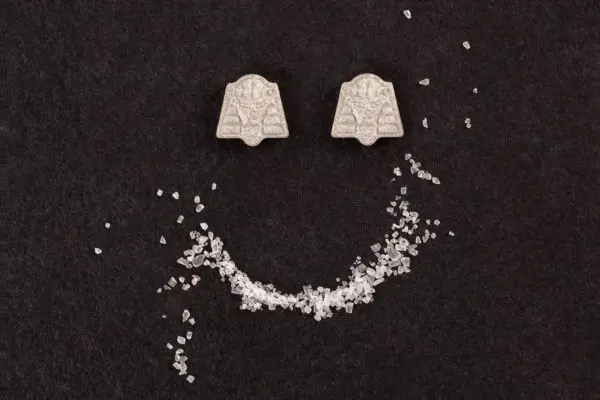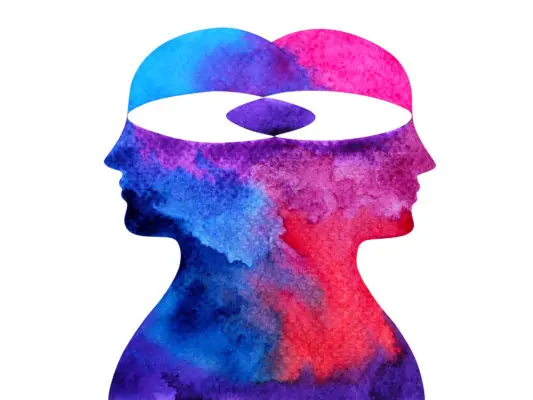Medical Editor: Dr. Lynn Marie Morski, MD, Esq
In the 1970s, MDMA played a useful role in couples therapy, but was banned by the DEA in 1985 and listed as a Schedule I substance. However, by 2023, MDMA-assisted therapy could be FDA-approved for the treatment of PTSD. Currently, due to prohibition and the war on drugs, most MDMA use is recreational. While pure MDMA tends to be relatively safe, the substance becomes dangerous when adulterated or mixed with other substances. In theory, MDMA test kits could help solve this problem, but their effectiveness is not always guaranteed. Let’s take a closer look at MDMA and how one can test for its purity.
What Is MDMA?
MDMA (4-Methylenedioxy-methamphetamine) is a synthetic psychoactive substance, also called molly and ecstasy, or E. It has been studied for its psychotherapeutic effects for decades, such as aiding in couples counseling for its ability to enhance empathy. MDMA is also a popular recreational drug, despite being banned for personal use in 1985 after American politics became more focused on the failed war on drugs.
MDMA-assisted therapy is currently being studied as a treatment for PTSD. Phase 2 clinical trials suggest that MDMA can treat PTSD by reducing fear and defensiveness while enhancing empathy, communication, and introspection. This helps people with PTSD revisit and process traumatic events without becoming overwhelmed. Due to the success of these trials, MDMA is currently in phase 3 trials in the U.S., Canada, and Israel and could be FDA-approved by 2023.
However, it is unrealistic to expect that drugs such as MDMA would only be used in a therapeutic session. MDMA is a popular recreational drug for its feelings of euphoria, connectivity, and enhancement of the senses. However, largely due to prohibition, what is sold as MDMA is not always pure MDMA. It may contain psychoactive substances designed to mimic the effects of MDMA like MDA (methylene-dioxyamphetamine, also called sass) or bath salts (synthetic cathinones, a class of amphetamine-like stimulants), stimulants like amphetamine, cocaine, or, methamphetamine, and sometimes even ketamine.
A 2014 survey suggests that almost half of the samples of what purported to be MDMA contained no actual MDMA whatsoever. Because of this, many psychedelic communities embrace harm reduction tactics, such as drug testing, to mitigate the risks of ingesting fake or adulterated MDMA.
It is rare for pure MDMA to cause a fatal overdose. Most of the time, when one has complications from taking MDMA, it is either because they took an adulterated or fake product or mixed MDMA with other substances. MDMA should not be taken with antidepressants, as it could dangerously raise serotonin levels, which may raise the risk of serotonin syndrome. Because MDMA can raise one’s heart rate and blood pressure, it should not be taken in conjunction with stimulants.
In addition to understanding the risks of recreational MDMA, and what substances are dangerous to mix MDMA with, one can take additional harm reduction practices into consideration, such as drug testing kits.
What Is Harm Reduction?
Harm reduction is different than an abstinence-only approach to drugs or sex. The strategies used acknowledge that humans are unlikely to refrain entirely from drugs or sex, and furthermore, that strict path could be unhealthy for some. This is particularly true for people who use psychedelics therapeutically and benefit from them as medicine.
An important harm reduction practice in the psychedelic world is using drug testing kits to verify the purity of the substance one plans to ingest. The most well-known supplier of drug testing kits is the public health organization DanceSafe. They have test kits available for MDMA, LSD, and more. They often set up tents at music festivals, so people can check to make sure their drugs are pure.
Do MDMA Test Kits Work?
Gas chromatography-mass spectrometry, a lab test, remains the most sensitive and specific testing method for identifying MDMA and its contaminants. This is considered the “gold standard” for forensic substance identification. However, this is not easily available to the general public.
A very popular testing kit is the MDMA DanceSafe testing kit. However, as DanceSafe says explicitly on their website, DanceSafe reagents can only determine the presence, not the quality of particular substances. So, even if a testing kit does work, it is only telling you what’s in the substance, not how much, or how good, the MDMA is.
To truly know if a drug is safe, one must have it tested in a lab. While this method is effective, it is not accessible for your typical person wanting to test their drugs before a music festival. The most accurate MDMA test is chromatography/mass spectrometry (GC/MS). The Erowid Center offers this service anonymously and publishes the results of a submitted sample once testing is complete.
There is, however, evidence that drug testing kits help people consider how much to take, and prompt people to consume lower amounts if an adulterant is found in a sample. Unfortunately, because drug testing kits are legally considered drug paraphernalia, music festivals, venues, and people who want to purchase test kits could get into trouble for having them.
Final Thoughts and Conclusions
As people are likely to continue using MDMA recreationally, at-home dance kits from organizations such as DanceSafe are theoretically a good idea from a harm reduction standpoint and may even encourage more responsible drug use. Even if data on how well home test kits work is lacking, is some testing better than no testing. However, the evidence suggests that they are unreliable, and the existing reliable testing methods tend to be hard to access. Therefore, the only safe way to consume MDMA is under the supervision of a medical professional, which at this time is an inaccessible option for most. For now, more education on safe use is one of the best options to keep those trying MDMA safe.









